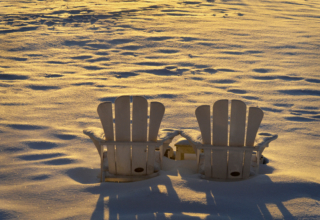
My father, a German who came to the US during WWII, was almost 60 when I was born. He was very much into the arts and was not sporty. As a little girl, he would take me to the Plaza for dinner and then to the opera. He was very old school and he talked a lot about local and national politics. Living through World War I and II, he also talked a lot about history. I would quiz him on what it was like to grow up in a very wealthy family in Germany during World War I. My mother was from the Bronx and was 17 years younger than my dad. She was 39 years old when I was born and had grown-up very poor during the depression in Bronx, New York. As a couple, they brought forward a very different perspective on how money was to be managed.
I went to an all-girls private school, located in the Upper East Side of Manhattan. I started there in fifth grade, and there were only 49 girls in my graduating class. A lot of lawyer’s and banker’s kids attended this school. There were five all-girl private schools in Manhattan, and mine was considered to be the most liberal.
After graduating high school, I knew I wanted to go to college in California. I was rebellious and wanted to get as far away as possible from what I knew. I would joke that it was the Mountain Dew commercials with the incredible beauty that brought me there. I went to UC Santa Cruz, a beautiful campus with no grades. I was 18 and it was a really good fit for me at that point in my life. I was very politically active on campus, got involved in the radio station, and became one of the assistant station managers. I also had a radio show where I would talk about current issues. I wrote my thesis on rape and gender discrimination in the Criminal Justice System and graduated with a degree in American Studies.
I traveled by myself to Europe for two months between sophomore and junior years. On the trip, I met a young girl who had been an au pair for a family. She had been raped by the father and blamed herself. I thought it was so terrible and sad that she didn’t know she was the victim. When I returned from that trip I decided to be a counselor for women and developed a strong interest in social work. I ended-up running a program for women who had been raped and subjected to incest. It was a women’s crisis support center in Santa Cruz. I was 21 years old, and the work was very hard and emotionally draining. I was finishing my senior year sitting home waiting for the crisis phone to ring when all of my friends were partying and having fun. It was very intense work, and I was getting very depressed and coming to a fork in the road.
While in college, I returned to New York for a few summers and worked in art galleries. One summer I worked for a woman named Diane Upright, a scholar in the arts world and director of an art gallery. I got a call from her telling me she had a stack of resumes from Yale and Harvard students who wanted to work for her, but she wanted me. I had a big decision to make. Should I stay in Santa Cruz and become a social worker or should I go back to New York to work as a receptionist at a modern art gallery that sold Picasso’s and would put me back into the “elitist” world? My parents had come out for my graduation, and I was torn. They were in their hotel room and my mother confronted me saying, “You need to come back to New York. You’re depressed.” Then my father said, “You like things too much, and you can’t make money being a social worker.”
Download Article















